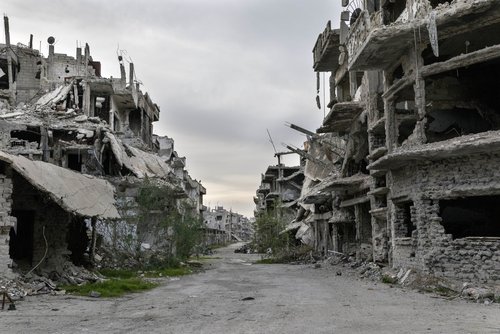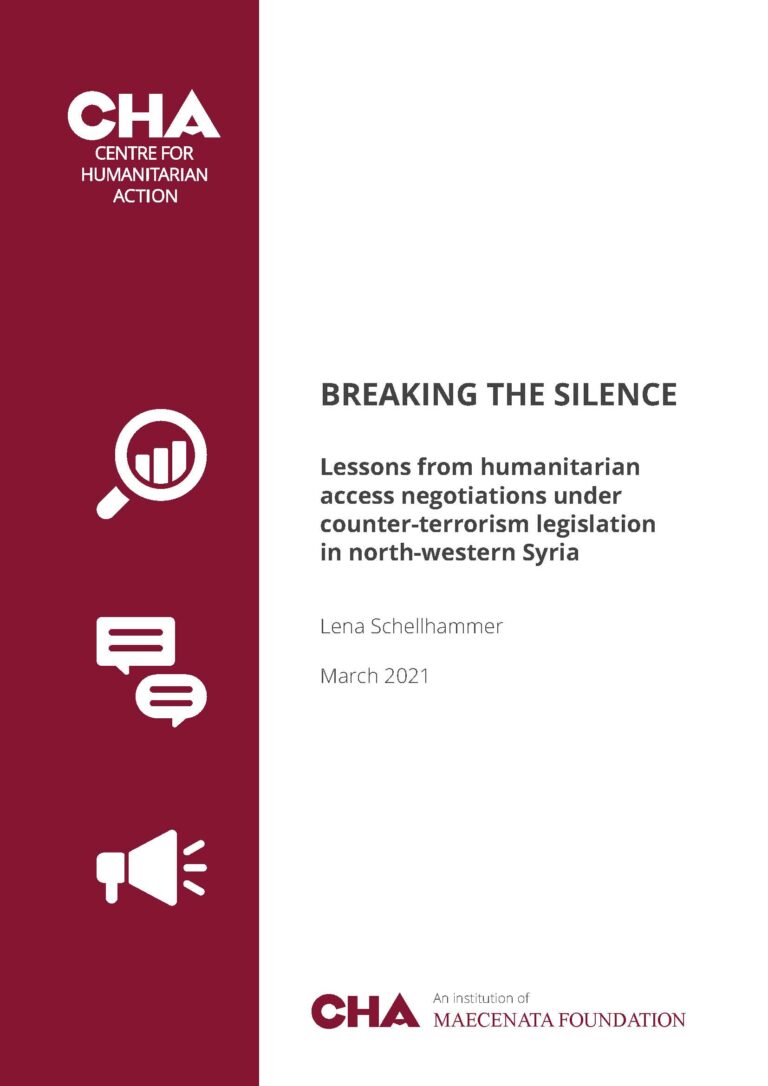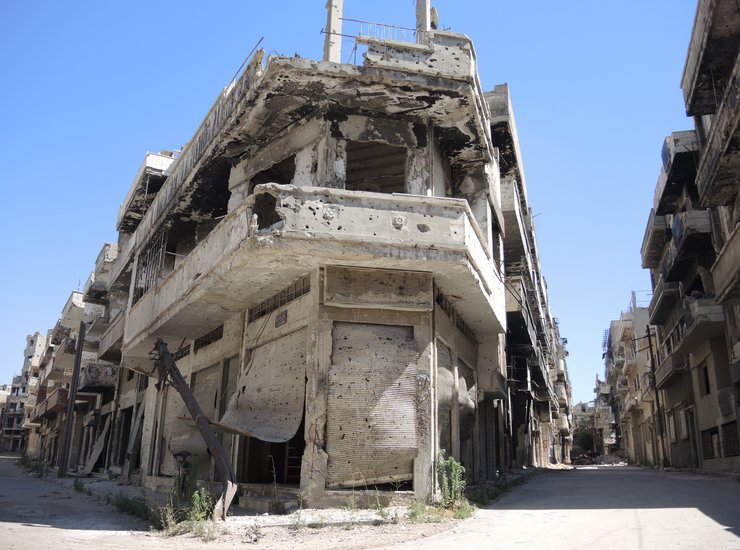In a new CHA paper, Lena Schellhammer explains how negotiations for humanitarian access are being carried out in Syria. In particular, she looks at how counter-terrorism measures can strengthen the negotiating position of designated terrorist organisations and at the same time weaken the access of aid organisations to people in need – especially as there is a lack of exchange and communication among aid workers.
Abstract:
Access negotiations between humanitarian actors and Non-State-Armed Groups (NSAG) controlling a certain area are a necessary precondition for providing humanitarian assistance to affected populations in that area. However, in practice, there has only been minimal support for humanitarians doing so, and the topic is rarely openly discussed, especially when humanitarian access needs to be negotiated with designated “terrorist” groups that are sanctioned by counter-terrorism legislation. This working paper fills this transparency gap by show-casing the humanitarian access negotiations with Hay’at Tahrīr al-Shām (HTS) and its local governance institution, the Syrian Salvation Government (SSG), in north-western Syria. Based on a general analysis with the help of the micro-politics theory by Michel Crozier and Erhard Friedberg (1979) and the power-dependence theory by Richard M. Emerson (1962), this paper outlines the implications of counter-terrorism measures on humanitarian actors’ ability to pursue these negotiations. First and foremost, they trigger a culture of silence that results in a generally weakened humanitarian negotiation position. However, they also foster problematic humanitarian negotiation strategies like the involvement of intermediaries and the threat to suspend humanitarian assistance. The paper concludes that, besides the use of so-called power networks, especially an enhancement of information exchange and an open culture of debate on individual strategies to humanitarian negotiations, are the most promising solutions to overcome the dilemmas posed by counter-terrorism measures to humanitarian access negotiations.
—
The paper can be downloaded here.
Lena Schellhammer will present and discuss her paper in an online CHA event on 11 March 2021 at 13-14:30 (CET – Berlin time). You can find more information on the event here.
Lena Schellhammer works for the local NGO Maram Foundation for Relief and Development and has research experience in northwestern Syria.





